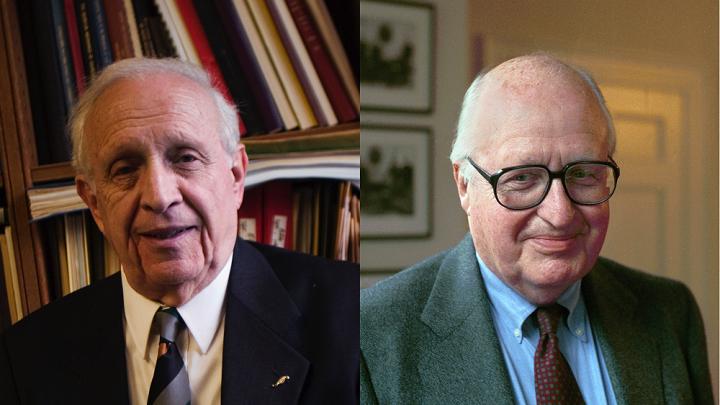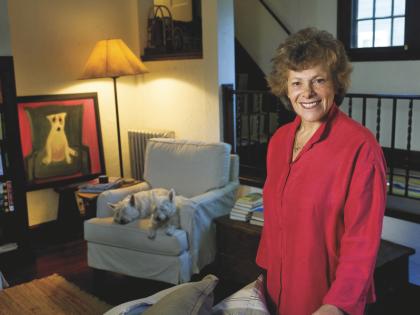Primus is often captivated by the Faculty of Arts and Sciences’ memorial minutes on the scholarly passions and personal crotchets of distinguished deceased professors. Those delivered on May 2 were intellectually mind-blowing: Pellegrino University Professor E. O. Wilson, the ant whisperer and biodiversity evangelist; professor of biological oceanography James J. McCarthy, whose studies of phytoplankton transmogrified into pioneering science and world leadership on climate change; Hooker professor of visual art Eduard Franz Sekler, to whom Harvard is obliged for visual and environmental studies (its on-ramp to academic art-making) and initial leadership of the Carpenter Center.
The two other subjects merit attention for a different reason. Their early life stories, under circumstances that were common less than a century ago, seem impossibly remote today. One hopes that the character built by such experiences has not vanished as well.
Roy J. Glauber, Mallinckrodt professor of physics, was born September 1, 1925, into what the memorial authors describe as “an unconventional family.” At age two, they “left New York to live in an automobile so that Roy’s father, a traveling salesman, could work throughout the Midwest. Roy’s mother, trained as an elementary school teacher, determinedly made Roy’s nomadic life as instructive as possible. Their travels ended with the birth of Roy’s sister in 1931, when the family settled in New York. An astronomy book and a visit to the Hayden Planetarium converted Roy into a science enthusiast, and he began to build scientific instruments.”
After enrolling at Bronx High School of Science in 1938 (and teaching himself calculus) and entering Harvard in 1941 (at age 16), the young savant proceeded to sharing the Nobel Prize in Physics in 2005—for what the memorial describes as just one of his three fundamental contributions to his field.
Nor did the laureate forget what matters. As the memorial minute concludes, “Roy Glauber raised two children as a single parent. In his Nobel biography, he noted that ‘raising those children and seeing them succeed was not an experience I would trade for the missing papers or any sort of recognition.’”
Hard to imagine better preparation than that for a career engaged in teaching new generations of students.
This magazine has lauded Henry Rosovsky for his service as president of its board of directors. But the Geyser University Professor was first and foremost a prominent economic historian, brilliant Faculty of Arts and Sciences dean, acting University president, and member of the Harvard Corporation. Born two years to the day after Glauber, in the Free City of Danzig, Rosovsky fled the Nazi occupation and came to the United States in 1940. Following World War II, as a counterintelligence officer in occupied Germany, he interviewed former Wehrmacht officers and attended the Nuremberg trials. He graduated from William and Mary, served in Korea and occupied Japan, and then came to Harvard to earn his Ph.D. in 1959. After a stint at Berkeley, he returned to Cambridge in 1965.
According to the memorial, Rosovsky viewed his role as dean as “akin to an art form. His approach to the job was intensely personal. He understood that he was managing not Ford or IBM but a medium-sized…collection of highly motivated individuals.”
Much of that worldview was hard-won earlier in the century. As the memorial authors relate: “Part of what made Henry’s personal touch so effective was his keen awareness of his own unusual insider/outsider status: his experience of having had his life turned upside down; the humiliation of flight and refugee rejection; the irony of a Jew standing at the top of one of America’s premier bastions of WASP privilege. In a story that he sometimes recounted, usually with a sardonic yet elegiac tone, one of the former Wehrmacht officers he interviewed after the war asked him, ‘Sergeant, where did they teach you German? You speak perfectly, but you have the vocabulary of a 10-year-old.’ It was vintage Henry: funny, yes, but aching with unspoken loss—of a civilization and the people who created it; of a refugee achiever who had lost a golden youth to hatred.”








